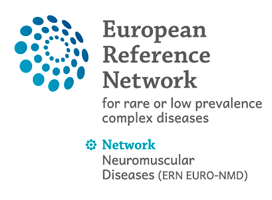This webinar is about what is new in FSHD. The field of FSHD is rapidly evolving. The clinical and genetic variability of this disease become more undestandable together with FSHD pathophysiological mechanism. The development of new therapies for this disease is rapidly evolving. Clinical trial readiness is the core issue that need to be addressed. The experts will give their point of view on what’s new on FSHD field and stimulate the discussion on what we can still improve with a collective effort.
This webinar is about what is new in FSHD. The field of FSHD is rapidly evolving.
The clinical and genetic variability of this disease become more undestandable together with FSHD pathophysiological mechanism.
The development of new therapies for this disease is rapidly evolving. Clinical trial readiness is the core issue that need to be addressed.
The experts will give their point of view on what’s new on FSHD field and stimulate the discussion on what we can still improve with a collective effort.
Sabrina SACCONI is Professor of Neurology at Nice University Hospital (France), now recognized as Reference Center for rare Diseases.
Pr. SACCONI starts to practice medicine in 1997 at Pavia in Italy and becomes specialist in neurology in 2003. From 2004 to 2008, she begins a European career and constantly improves her competences and understandings on neuromuscular disorder. In 2010, she obtains a PhD in cell physiology and biology with a work on genetic and epigenetic of facioscapulohumeral muscular dystrophy. In 2012, she obtains an accreditation to supervise research in Nice and becomes full University Professor in 2014 for the Nice UHC.
Since then, she is Head of the department « Peripheral Nervous System and Muscle ». She is also coordinating a basic research team at IRCAN Institute of Research on Cancer and Aging and working on the suppling of several databases and biobank on rare neuromuscular diseases.
The main research topic of Prof. Sacconi is the development of new therapeutic strategies on neuromuscular diseases based on the understanding the role of genetic, epigenetic, endocrine and immune system deregulation in the progression of these diseases.
Teresinha Evangelista is a Board-certified neurologist and neuropathologist with long standing clinical and research expertise in neuromuscular disorders. Dr Teresinha Evangelista was the president of the Portuguese Society for the Study of Neuromuscular Diseases from 2009 to 2013. In 2018, she became the coordinator of the European Reference Network for rare neuromuscular diseases EURO-NMD. In 2018, she joined the « Unité de Morphologie Neuromusculaire; Institut de Myologie – Sorbonne Université, GHU Pitié-Salpêtrière

